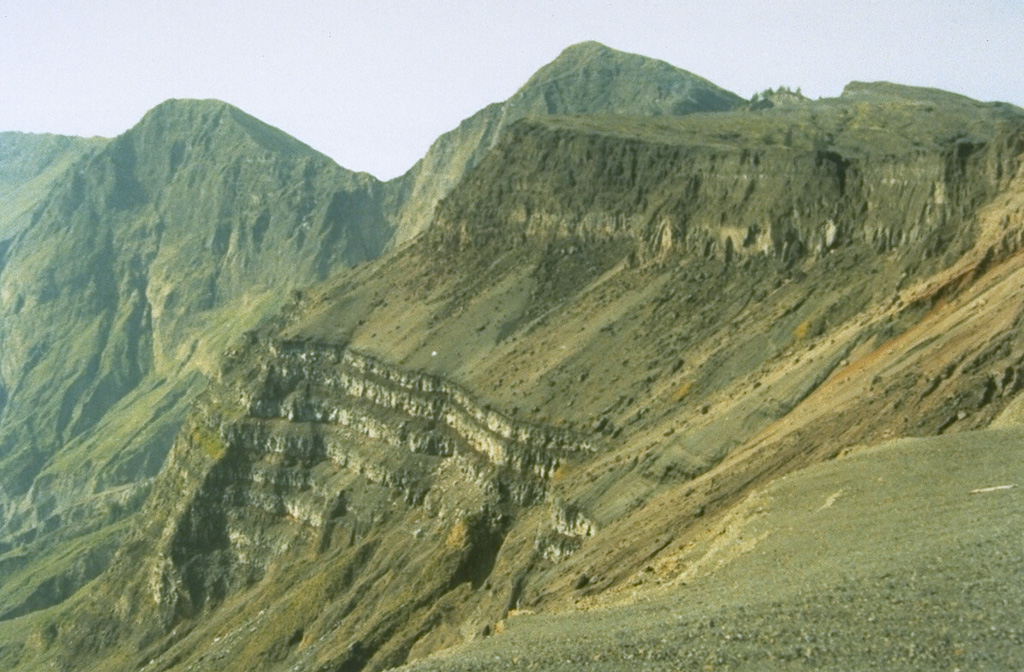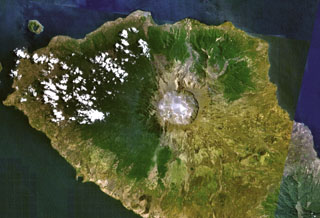Global Volcanism Program | Image GVP-01207

The bottom portion of this cliff section in the W wall of the Tambora caldera shows a thick sequence of bedded lava flows that filled an earlier caldera that formed 43,000 years ago. The sloping surface above it consists of pyroclastic material erupted between about 5,900 and 1,210 years ago. This is overlain by unit about 200 m thick that was produced during the 1815 eruption. These upper cliffs expose pumice deposits that originated from the eruption plume at the base, overlain by a thick sequence of pyroclastic flow deposits.
Photo by Rizal Dasoeki, 1986 (Volcanological Survey of Indonesia).
![]() This image is made available under the Creative Commons BY-NC 4.0 license terms.
This image is made available under the Creative Commons BY-NC 4.0 license terms.
Galleries: Calderas
Keywords: caldera | stratigraphy

Tambora
